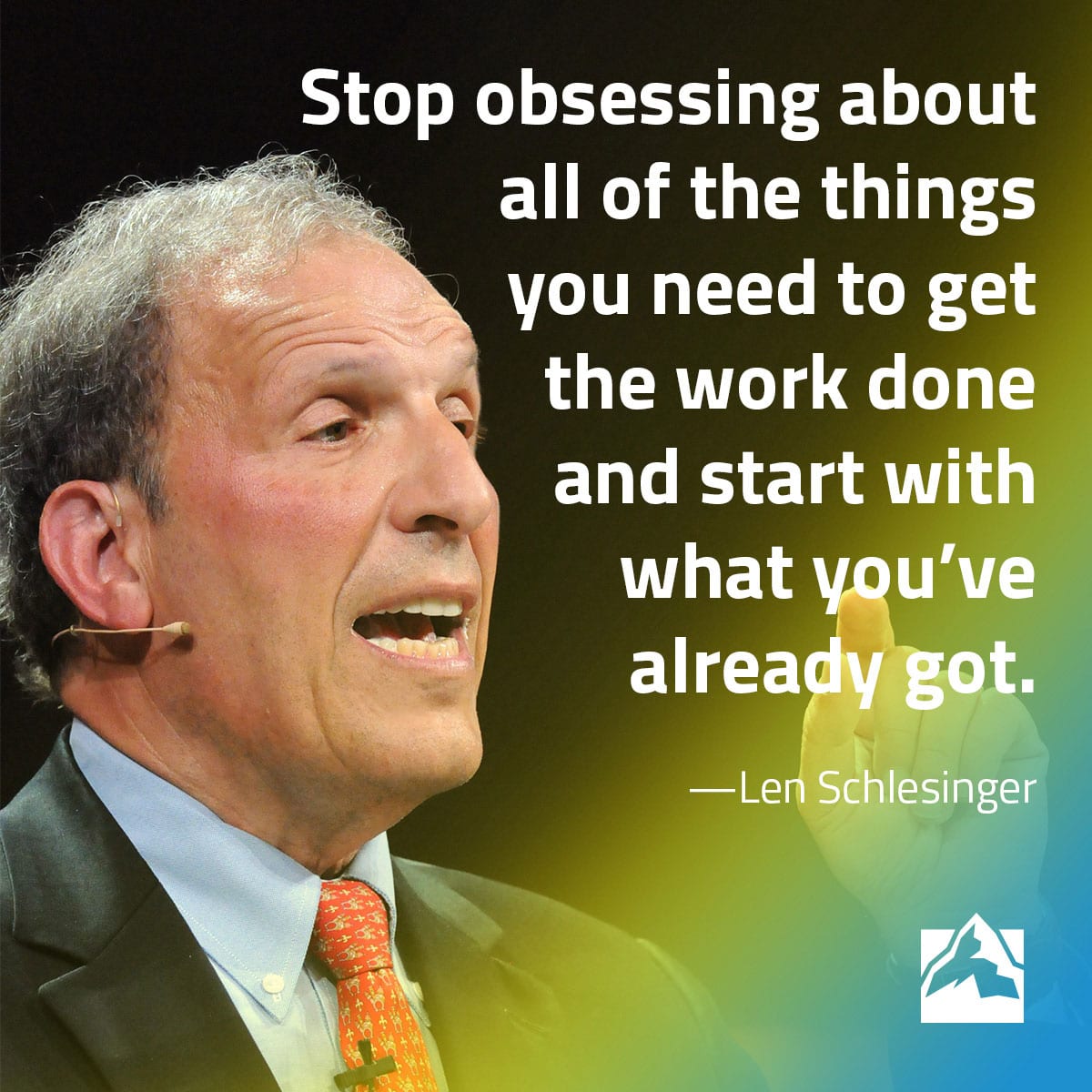
Stop obsessing about all of the things you need to get the work done and start with what you’ve already got.

Stop obsessing about all of the things you need to get the work done and start with what you’ve already got.

Change is an essential part of leadership.
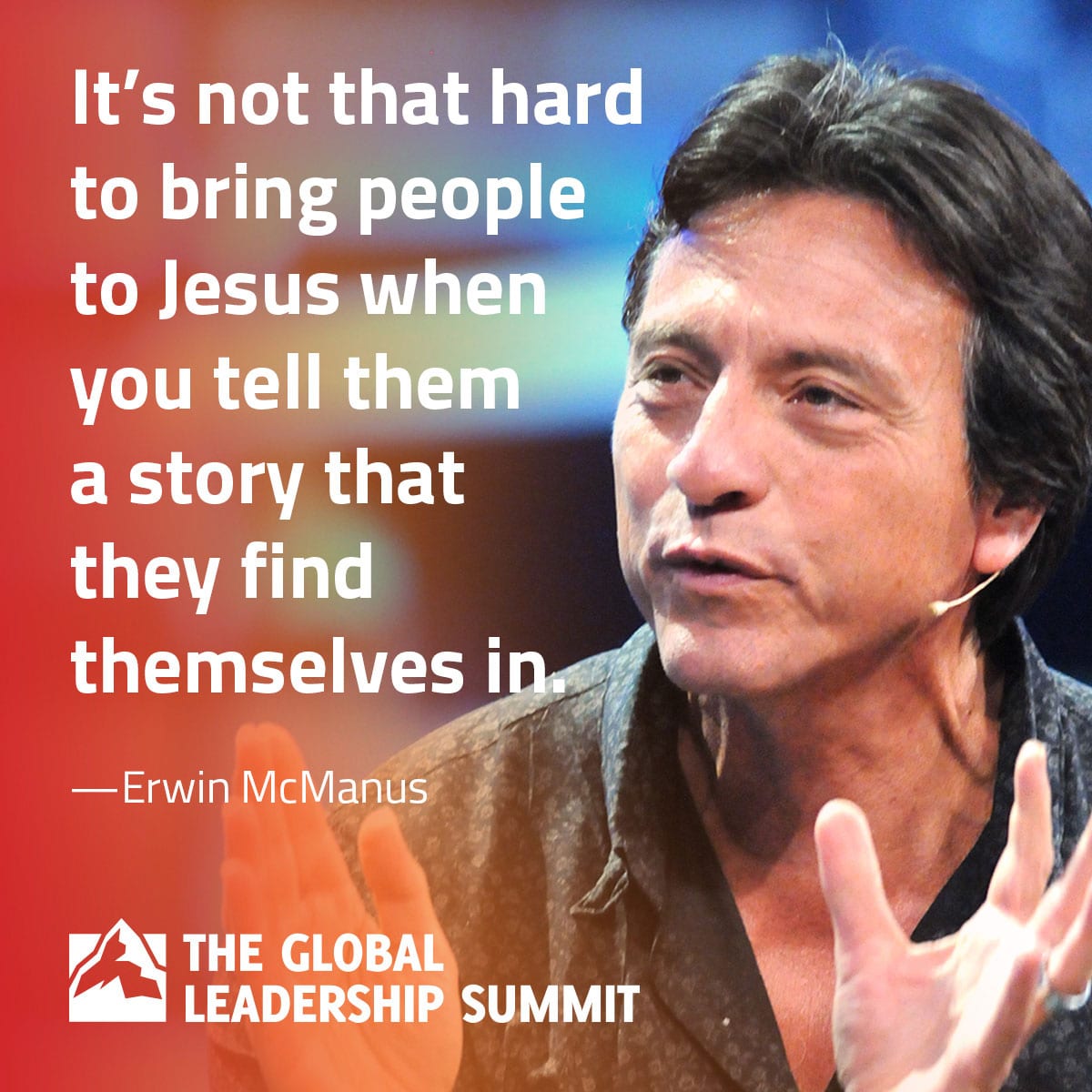
It’s not that hard to bring people to Jesus when you tell them a story that they find themselves in.

To the degree you see how you have everything you need in Christ, is the degree by which you live.
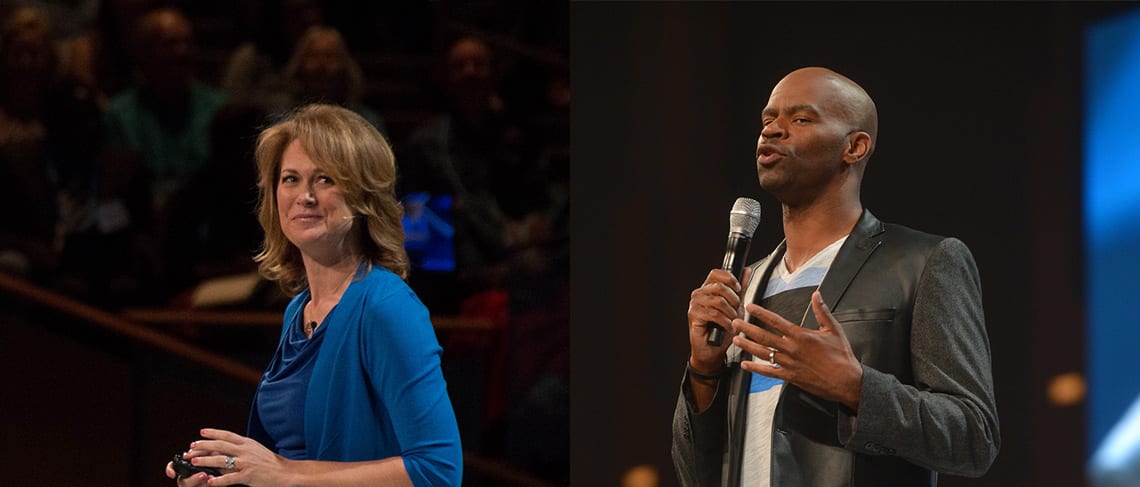
Have you ever wanted to be a fly on the wall – sitting in on the backstage conversations between the Global Leadership Summit faculty? Well, recently, Sheila Heen (GLS 2015) shared the story of her behind-the-scenes interactions with Michael Jr. (GLS 2013, 2014, 2015). One can only imagine what a quick-witted comedian would have to say to a Harvard expert on feedback. Click to find out . . .
https://www.youtube.com/watch?v=yNgBEuaBR6U&feature=youtu.be

Irené Raubenheimer co-founder of Rogz, a large pet supply company based in Cape Town, South Africa, has been attending the Global Leadership Summit for several years. While attending in 2012, God knocked him off his feet and inspired him with a grander vision.
Soon after the 2012 Summit, his company began to partner with an organization called Partners for Possibility, and has played an active role in helping to change the education system across the country. Partners for Possibility is now impacting more than 300,000 students lives in more than 400 schools, and they’re just getting started.
Take a look at this grander vision video from South Africa, and be inspired by what God can do through inspired leaders who partner together to transform their communities:
What might God do through you at the Global Leadership Summit?
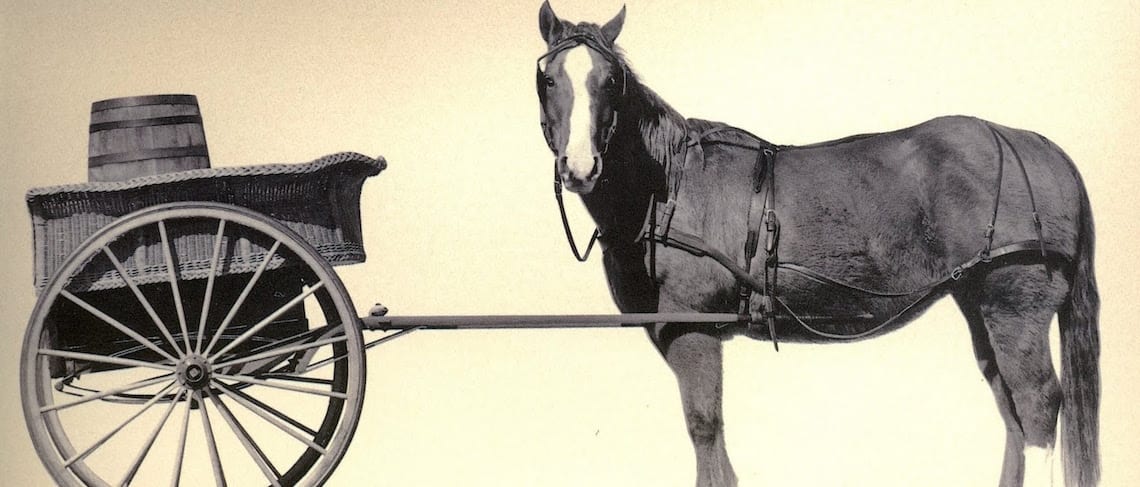
In a series of posts over the next several months, Summit Satellite Operations leader, Rhonda Jenkins, and Global Leadership Summit Volunteer Champion, Charlene Armitage will share insights and best practices for leading a team of volunteers.
Over the years, our team has interacted with thousands of volunteer teams that do the hard work of putting on the Global Leadership Summit in churches around the country. And when we see a volunteer team thriving – we know it all comes back to the leader. Good leadership of a volunteer team involves a vision for helping volunteers grow and become more like Jesus and a passion for excellent service.
But more often than not, we’ve seen leaders of volunteer teams put the cart before the horse. It is all too easy to take your focus off the volunteer—and focus on the task instead.
Have you defined a preferred future for your volunteer culture?
Paul’s words in Ephesian 4 remind us what a thriving volunteer culture looks like. In this passage, Paul gives a clear explanation of how God has uniquely designed each of us and how he calls us to use our gifts to the glory of God and the benefit of others. He says:
Using our unique God-design as we serve in the church, should encourage spiritual transformation. In short, by serving, we should become more like Jesus. And isn’t that what we all want for our volunteer cultures—and for our entire church?
Does your current volunteer culture focus on doing tasks rather than becoming like Jesus? Are you asking volunteers to help before you even find out who they are or how God has uniquely gifted them?
Take a few minutes to make an honest assessment of the current reality of your church’s volunteer culture. Which of the following statements would best describe your current situation? (Make a note of all that apply.)
☐ To be honest, we actually do focus more on tasks over helping volunteers become more like Jesus.
☐ We would like to focus more on spiritual development and implement the Ephesians 4 principles, but we don’t know how.
☐ We track people’s service – but don’t use a spiritual gifts assessment tool.
☐ We provide a spiritual gifts assessment class; however, we lack an effective placement/caring process that would ensure a volunteer’s continued service.
☐ We have an effective spiritual gift assessment process that feeds into a volunteer tracking system, which results in volunteers being accurately matched with serving opportunities and ultimately becoming more like Jesus through their volunteering.
If your current volunteer culture is defined by any of the first four statements above, perhaps you are putting the volunteer cart before the volunteer horse.
Working with the thousands of volunteers who put on the Global Leadership Summit, our teams have learned to identify the cultures where volunteers thrive. These effective cultures are filled with enthusiastic and fired-up volunteers, who increase their church’s effectiveness.
We have observed that the best volunteer cultures have leaders who enact the following three practices:
Join us over the next several months as we dig into these three practices, sharing our experiences in matching each volunteer with his or her God-given design, and how, while serving, we can help people become more like Jesus.
This will ensure we do not get the volunteer cart before the volunteer horse.
 Rhonda Jenkins is in her 12th year of leading Summit Satellite operations for Willow Creek Association. Her passion for the ministry of the WCA was ignited 20 years ago when she volunteered at a conference. Rhonda loves to inspire other leaders by how she leads with heart, passion and love.
Rhonda Jenkins is in her 12th year of leading Summit Satellite operations for Willow Creek Association. Her passion for the ministry of the WCA was ignited 20 years ago when she volunteered at a conference. Rhonda loves to inspire other leaders by how she leads with heart, passion and love.
 Charlene’s passion to see volunteers fulfilled, experience joy in serving and grow to become more like Christ while serving is reflected in every aspect of her leadership. As Global Leadership Summit Volunteer Champion, she releases leadership as she mobilizes volunteer team leads who in turn lead teams to serve guests at the Summit.
Charlene’s passion to see volunteers fulfilled, experience joy in serving and grow to become more like Christ while serving is reflected in every aspect of her leadership. As Global Leadership Summit Volunteer Champion, she releases leadership as she mobilizes volunteer team leads who in turn lead teams to serve guests at the Summit.
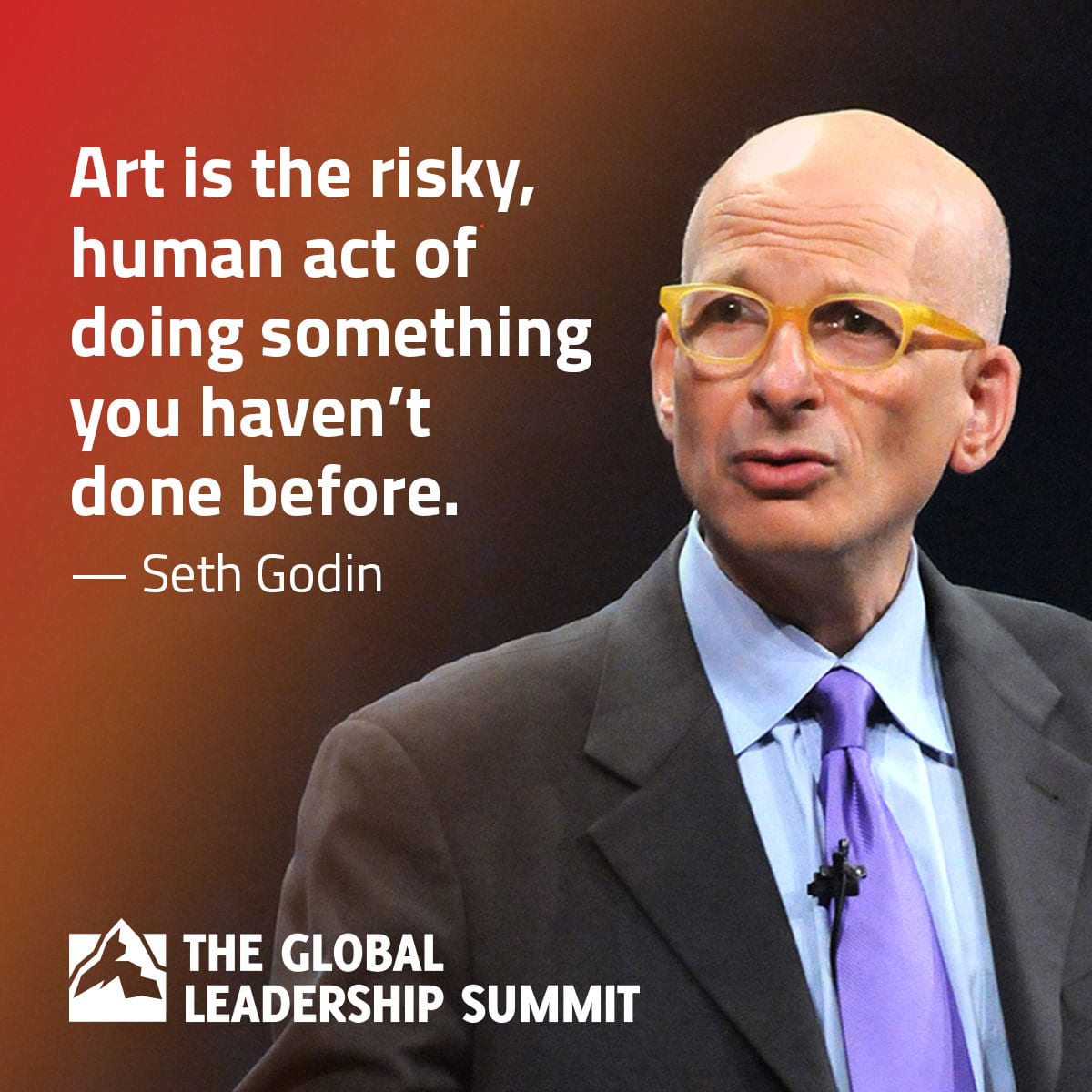
Art is the risky, human act of doing something you haven’t done before.

We have to speak the kind truth.
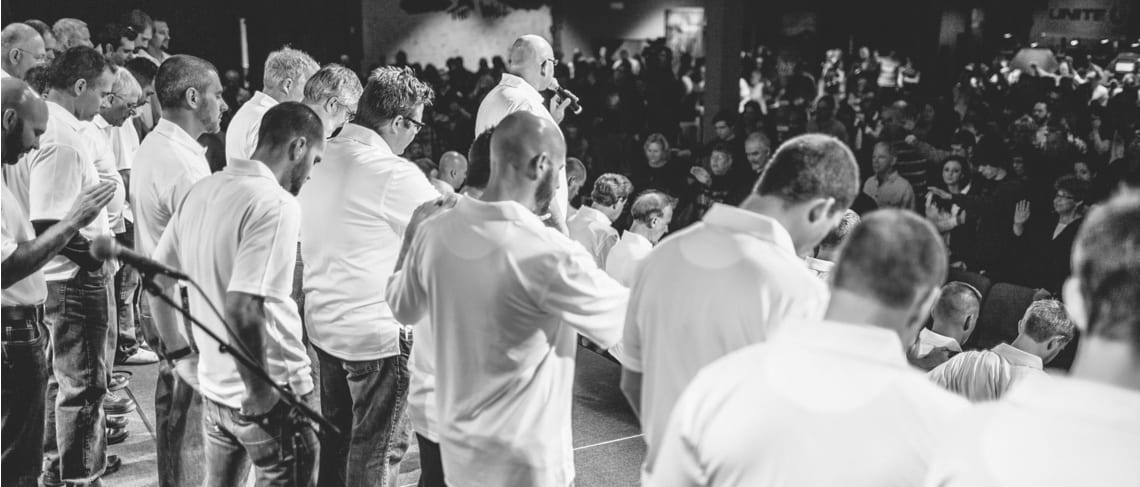
Bryan Zeamer, business-owner and founder of a non-profit ministry in Manheim, Pennsylvania, had his world rocked after hearing the opening session, “Holy Discontent” at the 2005 Global Leadership Summit.
“That day, I made a commitment to myself and the Lord that I would make a difference for His Kingdom.” After returning home, Bryan was consumed with a desire to turn the message into an action plan. What he couldn’t figure out, however, was “the thing” that was his Holy Discontent. He began to ask those closest to him what they thought. It was confirmed for him rather quickly when his wife, Heather, didn’t think twice before responding, “When men don’t do what God intends for them to do. “
“In that moment, the Holy Spirit breathed into me the vision for what would become Men Of Iron,” Bryan recalls. As he wrestled with how to translate his discontent into a workable plan for impacting the Kingdom, he reflected on his own life. While observing those around him, he became aware of the difference he saw in the lives of men who chose to honor God and those who didn’t.
“Several years before the 2005 GLS, I had a powerful experience that prepared me for the ministry God was unfolding. I was a 30-year-old husband and father and an active member of my church. One Sunday, I was praying at the altar and felt a man lay his hands on my back and pray for me. It was a powerful and pivotal moment. When I walked back to my seat, I saw that is was Bob Bender, a Godly, servant-leader in our congregation, who had prayed for me. For several days, I thought about that. I decided that I wanted my life to reflect the values and integrity I saw in Bob. I asked him to mentor me, and he said ‘yes’. We met regularly to discuss the many successes and challenges in my life. As a new husband and father and a young businessman just starting in the family business, I had a lot of questions. Bob taught me how to rely on God with the strength and faith that God intends. “
“I think Bob’s strongest testimony to me was when his wife, Vi, passed away from cancer. Even as he grieved the loss of his wife, he had an unwavering faith. In the midst of despair, his relationship with God didn’t falter. I was challenged by his solid hope in Christ and his gratitude in knowing that God would use him for His purposes. “
Bryan began to realize the power of mentorship as he experienced the life-changing impact of Bob’s example. He wanted to pay forward the lessons he learned from Bob and other Godly men.
 Bryan was challenged to take action toward a grander vision. “Once I identified my Holy Discontent, I wrote out a plan for a men’s mentoring program. When I presented it to my pastors, they immediately caught the vision, and the planning began.”
Bryan was challenged to take action toward a grander vision. “Once I identified my Holy Discontent, I wrote out a plan for a men’s mentoring program. When I presented it to my pastors, they immediately caught the vision, and the planning began.”
In 2006, the church launched its first Men of Iron class with 20 men- 10 mentors, 10 protégés. Using the book As Iron Sharpens Iron by Howard and William Hendricks and drawing on his own experiences with coaches, business consultants and his mentor, Bryan trained the mentors and assisted in matching mentors and protégés. The following year, the ministry grew to 40 men.
“We believe the local church is the hope of the world, and our mission is to ‘Sharpen Men and Strengthen the Church’. In 2016, we are excited and grateful to have partnerships with 18 churches with an additional 7 joining this year. By the end of 2016, we expect to have impacted 2,000 men with one-on-one intentional, biblical mentoring. The power of one-on-one mentoring is changing men, their families and their communities. We believe it is only a matter of time until Men of Iron will impact the culture around the world.
God uses the GLS to speak into leaders’ lives. What might God say to you this GLS season?
“We welcome and encourage comments on this site. There may be some instances where comments will need to be edited or removed, such as:
If you have any questions on the commenting policy, please let us know at heretoserve@globalleadership.org”
Recent Comments